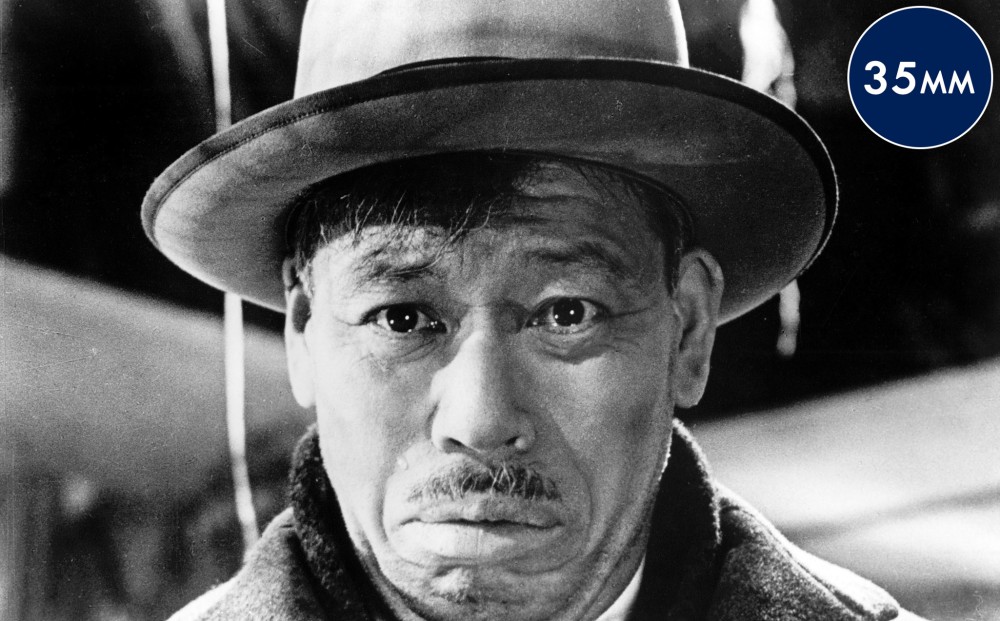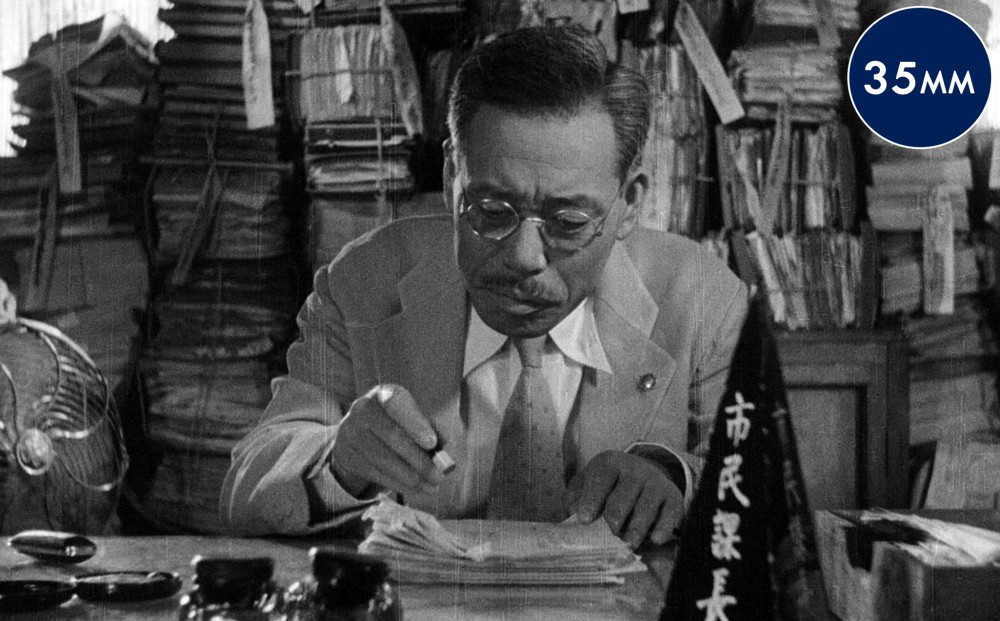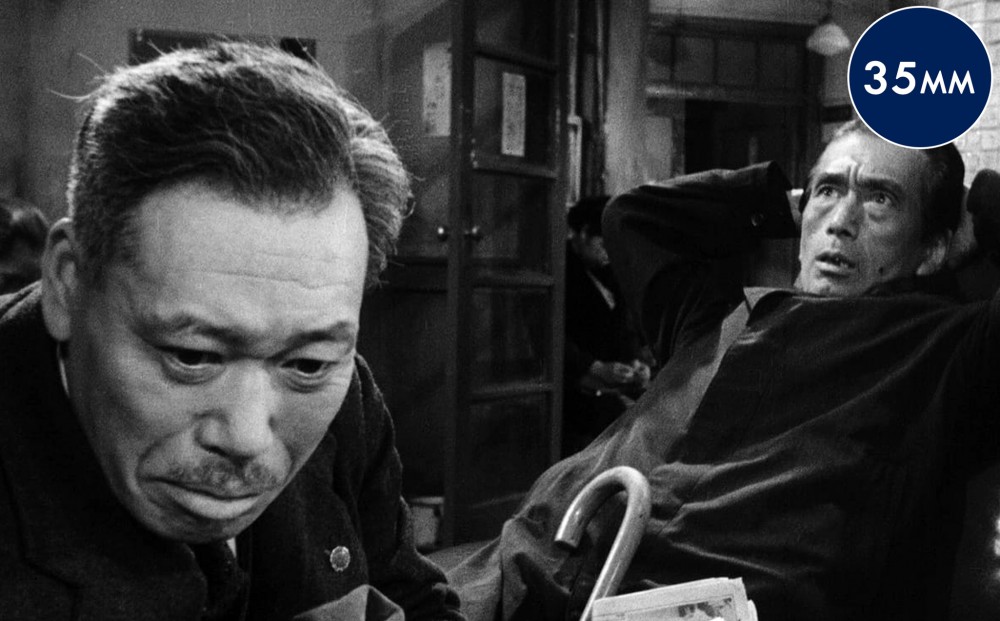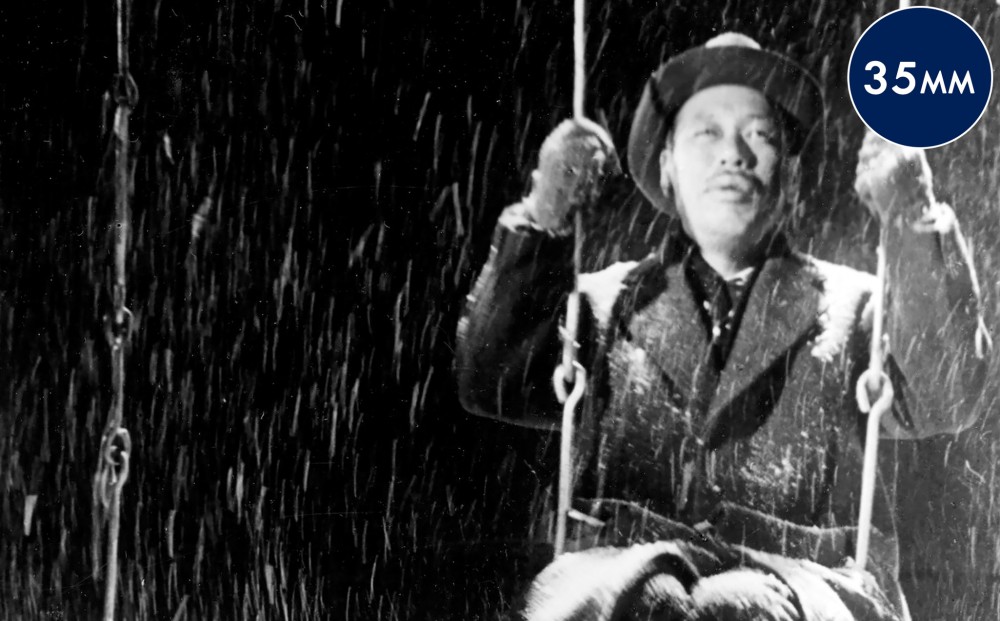IKIRU
12:30
Monday, October 21
生きる
Director Akira Kurosawa
Cast Takashi Shimura, Shin’ichi Himori, Nobuo Kaneko
Screenplay Akira Kurosawa, Shinobu Hashimoto, Hideo Oguni | Cinematography Asakazu Nakai
1952 | Japan | 35mm | approx. 143 min. | In Japanese with English subtitles
As doctors murmur over his X-ray, Takashi Shimura’s paper-pushing bureaucrat Kanji Watanabe gets the insider lowdown from a waiting room veteran on the proper translation of hospital euphemisms, then gets the one that means “terminal cancer.” What to do when you’ve only got six months left? (The film’s title translates literally, as “To Live.”) Family ties, booze (his stomach can’t take it), fast living (that new craze, the striptease, just sends him into shock), taking out a vivacious young woman from his office: Shimura gives them all a try, but as schoolgirls trill “Happy Birthday” at a private party next door, he figures out what he can do. And as tipsy do-nothing co-workers maudlinly reminisce during the second-act wake – while true-life flashbacks sardonically spell out the difference between truth and illusion – the question remains: did his ultimate achievement make a difference? A critical and commercial smash in Japan, winning Kurosawa his second Kinema Junpo “Best One” Award and taking Silver Bear at the Berlin Film Festival, Ikiru’s radical plot construction baffled early U.S. viewers – it waited eight years for a commercial release here – while providing Kurosawa mainstay Shimura (the eponymous Drunken Angel, Mifune’s senior mentor in The Quiet Duel and Stray Dog, his crooked lawyer in Scandal, Rashomon’s woodchopper) with the role of a lifetime, his acting aided by post-operative stomach trouble throughout the shoot. His next for Kurosawa would be as the radically different leader of the Seven Samurai.
Reviews
“One of the few movies that might actually be able to inspire someone to lead their life a little differently… Over the years I have seen Ikiru every five years or so, and each time it has moved me, and made me think. And the older I get, the more Watanabe seems like every one of us.”
– Roger Ebert




